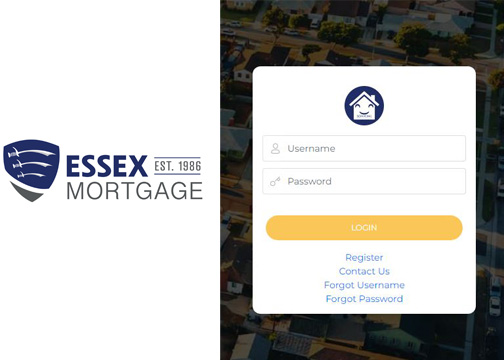What is a Payday Loan?
A Payday loan is a short-term loan that comes with a high-cost for a small amount usually $500 or less. This type of loan is sometimes regarded as a high-risk loan in America because the average interest rate is 391% and can be higher than 600%, according to incharge.org. Payday loans are usually due on your next payday as a borrower which is mostly two-weeks but sometimes in a month. The loan automatically will be deducted from your account by the lender on borrower’s next payday or you will get a personal check from the lender telling you when your next paycheck falls plus interest. You can apply for Payday loans online or visit other physical commercial payday lenders within your state.

Payday loans are usually issued to borrowers with bad or none credit and must provide some documents which include a means of identification, bank account, income and other financial information. Although, Payday loans are known for sorting out emergency expenses but can be difficult to pay back. According to reports gathered from Consumer Financial Protection Bureau, 80% of borrowers do not pay back Payday loans in two weeks. This will then lead to increment in the interest rates and the amount the borrower owed which may however makes it impossible to pay off.
Incharge reports that due to this increment in high interest rates, Payday loans have been banned in 12 states in the United States mostly for states who are not able to meet up with the high interest rates. For residence in Texas, the interest rate can go as high as 662% on $300 borrowed. This means you may have to pay back $370 in return in two weeks and if it takes five months, you will repay $1,001. While 45 states and Washington D.C is also on high sides. Plus, 18 states also have their interest at 36% on $300 loan. Due to this reasons and high interest rates, financial experts warns borrowers against payday loan especially if you know you have difficulty paying it back immediately. You can however try other alternative lending sources instead. But on the contrary, Payday loans are emergency solution provider funds for consumers in the days of financial crisis but come with heavy budget bursting expenses for individuals. Let’s quickly highlight how Payday loans work.
How Do payday loans work?
Payday loans vary from $50 to $1,000 depending on the law governing your state. Once your application is approved, you will get your cash by hand immediately or deposited into your bank account within one or two days.
During the application process online or at the payday lending office, consumers will be asked to fill out a registration form where they will be asked to provide their means of identification, bank account details (usually income and checking account information), and a recent pay stub. The payday lender will then confirm your information for approval. Once approved, you will get your cash immediately. In exchange of payment, the lender will ask you for a method of repayment either by asking you for a signed check or permission to electronically withdraw the money from your bank account.
For both online and store payday lenders, full loan payment is usually on the due date of the borrower’s next payday which is two weeks. For online lenders, the amount owed will electronically or automatically be deducted from your account but if you fail to pay up or show up for store payday lenders on due date for the loan repayment, the lender will run a check or make the withdrawal for the loan amount plus interest.
RELATED”>>>>>>>>>>>>>Easy Ways to Get a Personal Loan With Bad Credit from Top Lenders
How Much Does Payday loans Cost?
According to Consumer Financial Protection Bureau, the cost of a Payday loan from lenders usually cost $10-$30 interest for every $100 borrowed. This also applies to credit cards, credit cards, mortgages, auto loans. The interest is calculated on an annual percentage rate basis (APR) which can increase from 391% to more than 521% for payday loans.
This is one of the reasons why payday loans come with a high risk because if you are not able to pay back your loan on the first payday, the interest rate and fee you are to repay will increase which can end up in accumulation of debts making you get trapped in it.
How much can I Borrow with a payday loan?
The amount of money you can borrow depends on the law of your state and financial status. Most states ranges from $300 to $1,000 for their payday lending cap amounts. According to experian.com, 32 states allow payday lending capped with maximum loan amount. California and Montana have the lowest payday loan amount while states like Illinois, Delaware, and Idaho have the highest cap amount at $1,000. Wisconsin, Wyoming, Maine, and Utah do not have a cap.
Some states like New Mexico and Nevada also limit each payday loan to 25% of the borrower’s monthly income. For the 32 states that allow Payday loans lending, you can check the Consumer Financial Protection Bureau for the cost of the loan, maximum loan amount capped and the fees. You can also check your payday lending statuses for your respective states.
What are the Requirements I Need to Get a Payday Loan?
To qualify or become eligible for Payday loan, you must have the following documents.
- Must have an active bank account
- Means of identification (Valid ID)
- Must be 18 years old and above
- Must reside in the United States
- A recent pay stub
- Valid Social Security Number (SSN) for some lenders
Keep in mind that despite having all these requirements you can still be rejected if you don’t meet your lenders demand which are other personal requirements of the lender that will be revealed to you during your application process.
How Can I Repay a Payday Loan?
The full payment for your payday loan is expected to be repaid by your next payday which is two weeks. Although the repayment terms of different lenders vary, it is however important for you to know check the date in the agreement or ask for the specific due date. However, to pay back your loan you can use the various options listed below depending on your lender.
- The lender’s official website available online
- A check on your next payday
- An electronic debit from your bank account
- Another form of credit
- A postdated check when you apply
Keep in mind that if you do not pay off your debt when it is due, the lender will automatically deduct the money plus interest from your bank account.
RELATED”>>>>>>>>>>>>>> SBA 504 Loan – How to Apply and Make your Businesses Qualify for SBA 504 Loan | Know the Businesses That Qualify
What Happens if You Can’t Repay a Payday Loan?
Under normal circumstances, the deadline for the payday loan repayment is two-week. But if the consumer can’t repay the debt by the two-weeks, he or she can ask the lender to “roll over” the loan. This roll over options varies depending on the lender and the state where you reside. This means the lender allows the old loan balance due to roll over into a new loan or will renew the existing loan again. Roll over usually come with a fee which could be charges for late fee or a non-sufficient charge fee. In other words, if the your state allows it as a borrower, the borrower will be allowed to pay the charges fees and the loan will be extended but the interest rates will continue to increase and the amount.
Keep in mind that if you also fail to make payment, bank fees charges will be added which will also accumulate debts for you. If by any means, a lender is unable to collect the funds from you; a collection agency will collect your loan information.
Payday Loan Alternatives
There are other alternatives ways of securing debt relief packages instead of falling back on payday loans. They include the following:
- Borrow money from friends or family: One of the best ways to save yourself from trouble is by borrowing money from family of friends. You do not have to pay a very high interest or you even do not pay any interest at all and you have more time to pay back that is more that the payday two weeks deadline.
- Local charities and churches: churches and local charities organizations are a way you can get financial assistance too for free. Charities organization like Salvation-Army, United Way and churches like St. Vincent de Paul Society often help people and some of its members with a token amount of few hundred dollars to pass through financial tough times.
- Personal Loan from a credit union or online lender: Personal usually comes with low APR which is better and more affordable to bear than Payday loan. So if you can a soft personal loan from credit union even with bad credit but you will have to become a member before you are given. You can also get some online lenders that offer bad-credit loans and you get funded on the next working day but they usually come with high interest rates.
- Community Banks that offer small-dollar loan: you can also smaller loans from local or community banks that come with low interest. Some of these banks include Mainstreams banks, Bank of America small dollar loan, U.S Bank simple loan, etc.
- Paycheck advance: Many companies offer employees access to get money they earned before their paycheck is due. For instance, if an employee has worked for ten days and the next scheduled paycheck isn’t due for another seven days, the company can pay the employee for the ten days. It is not a loan. It will be deducted when the next payday arrives.
- Try other interest-free cash advance app: There are mobile apps such as Earnin, Dave and Brigit which offer interest-free or low-fee advances on your paycheck up to two days ahead of time, though there are eligibility requirements depends on how much you can borrow.
RELATED”>>>>>>>>>>>>>>> SBA 7(a) Loan: How to Apply for SBA 7(a) Loan & Everything You Need to Know about it






